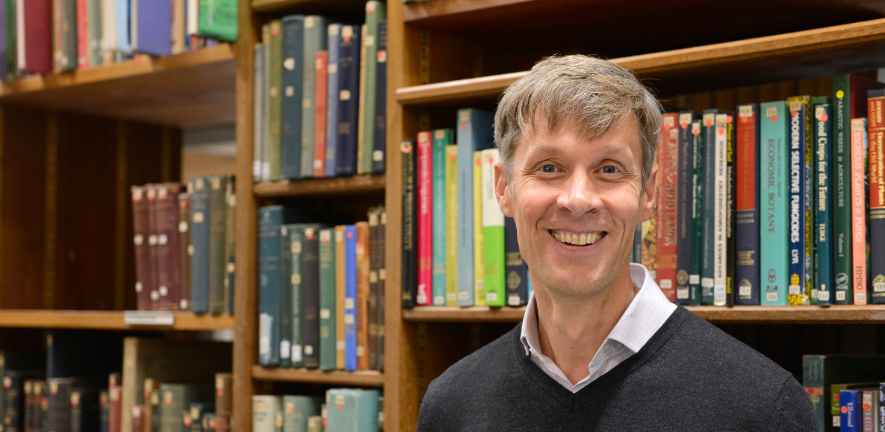
Submitted by Jane Durkin on Tue, 20/05/2025 - 10:52
Congratulations to Julian Hibberd, Professor of Photosynthesis and Head of the Department of Plant Sciences at the University of Cambridge, who has been elected as a Fellow of the Royal Society, the UK’s national academy of sciences.
Professor Hibberd’s election is in recognition of his work on C4 photosynthesis. His findings are now playing an important role in guiding optimisation of photosynthesis to improve crop yields.
The C4 pathway is a complex form of photosynthesis that evolved from around 30 million years ago and is now used by the most productive plants on the planet.
Professor Hibberd has provided key insights into the evolution of C4 photosynthesis through analysis of plant physiology, cell specialisation, organelle development, and the control of gene expression.
“My personal congratulations on this accolade for Julian – a fitting recognition of the important and elegant research from him and his group,” said Professor Sir David Baulcombe, Vice President of the Royal Society and Head of the Gene Expression group at the Department of Plant Sciences.
“I am deeply honoured to be elected to the Royal Society. At the moment I still can’t quite believe it. Of course, this was only possible because of the support others have given me,” said Professor Hibberd. “This includes those who knowingly and unknowingly guided me – many of whom have also been wonderful colleagues in the Department – and all members of the lab who have generated so many ideas and discoveries.”
The Royal Society is a self-governing Fellowship of many of the world’s most distinguished scientists drawn from all areas of science, engineering and medicine.
The Society’s fundamental purpose, as it has been since its foundation in 1660, is to recognise, promote and support excellence in science and to encourage the development and use of science for the benefit of humanity.
This year, nine outstanding scientists from the University of Cambridge have been elected as Fellows of the Royal Society.
“It is with great pleasure that I welcome the latest cohort of outstanding researchers into the Fellowship of the Royal Society,” said Sir Adrian Smith, President of the Royal Society. “Their achievements represent the very best of scientific endeavour, from basic discovery to research with real-world impact across health, technology and policy. From tackling global health challenges to reimagining what AI can do for humanity, their work is a testament to the power of curiosity-driven research and innovation.
“The strength of the Fellowship lies not only in individual excellence, but in the diversity of backgrounds, perspectives and experiences each new member brings. This cohort represents the truly global nature of modern science and the importance of collaboration in driving scientific breakthroughs.”
The Fellows and Foreign Members join the ranks of Stephen Hawking, Isaac Newton, Charles Darwin, Albert Einstein, Lise Meitner, Subrahmanyan Chandrasekhar and Dorothy Hodgkin.
Read more: Cambridge researchers elected as Fellows of the Royal Society 2025
Image: Professor Julian Hibberd. Photo by Andrew Benton.
